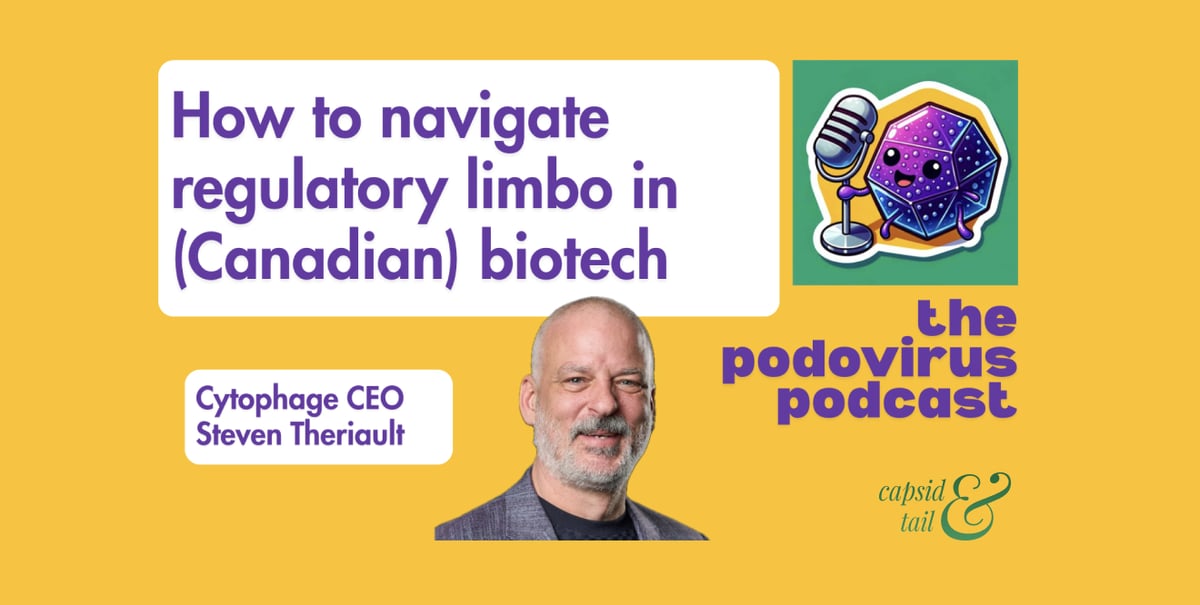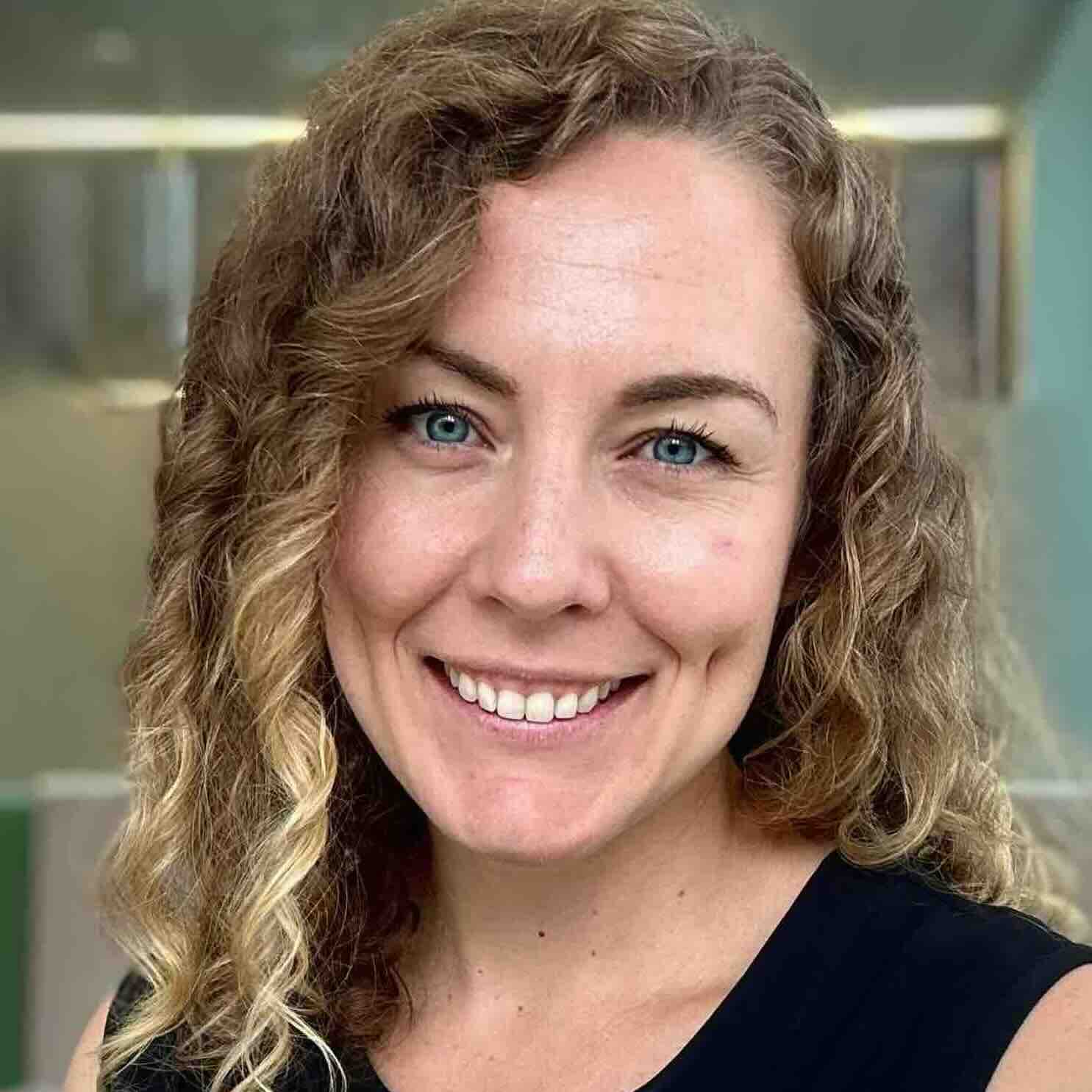“Phages are not drugs. Every time they say, ‘Did you go through regulatory?’ I say, ‘I can do regulatory, but I’m not a drug.’ There’s 145 components of the regulatory requirements that I don’t fit in.”
When your health innovation doesn’t fit existing regulatory boxes, how do you build a business? Steven Theriault, CEO of Cytophage, has spent 9 years learning to navigate Canada’s regulatory maze for phage therapy. From being told “we don’t know” by government officials to raising $24M and treating patients, Steven shares his hard-won playbook for building in uncharted regulatory territory.
In this episode of the Podovirus Podcast, we talk to Steven Theriault about what he’s tried, accomplished and learned in the last ~decade building a phage biotech company in Canada:
Highlights from our conversation:
- The “not a drug” dilemma: Traditional GMP guidelines don’t account for the inherent variability of biologics – if Steven’s phage grows to 10^12 instead of 10^10, that may be better for treatment, but regulatory frameworks would see it as “out of spec”
- Regulatory geography matters: Cytophage has more traction with U.S. and international regulators than in Canada, despite being a Canadian company, because other countries are adapting their frameworks for phages
- The emergence of new regulatory hurdles: Mid-treatment, a new government organization emerged requiring four months to review phage preparations – potentially fatal delays for dying patients
- Commercial viability through reduced cost per dose: By achieving 10^15 phage titers with treatment doses of only 10^3, Steven’s team can achieve a treatment dose [for chickens] for something like 0.00006 cents — well below the pennies-per-dose that antibiotics go for
A few snippets from the episode…
On leaving government to pursue phage innovation:
“I realized that the government’s not necessarily the best place for out of the box thinking. So for myself, I stepped out of the government, again, very secure job, worked there for about 15 years, had a great career, stepped out because I really saw a need as well as something that we could do with phages.”
On the reality of treating patients in Canada:
“For human, we’ve always looked at human sides. The biggest thing for us though is we can only do about four patients a year. And the reason we only do four patients a year is because of cost restrictions. If this was a funded program, I could do a hundred patients a year.”
On the disconnect between science and regulation:
“Listen, we all know toxicity is not an issue. When I put in my first application in the Canadian government, of which I have four currently, applications have been sitting there for 18 months, they asked us to come back and show toxicity. So I went ahead and I paid for a study, and this is like the most boring study you’d ever read in your life. Nothing happened.”
On the funding momentum shift:
“I haven’t been this excited about phage research and the success of phages since I started this company. It’s just this new year that sort of really showed that people are starting to flip the switch and really understand.”
What’s next for regulatory reform:
Steven is working on developing guidance documents for phage research in Canada and expects significant policy changes with the new government. His vision includes coordinated phage treatment protocols across Canadian research centers and potentially a dedicated phage research facility to streamline patient access.
Listen to the full episode:
Learn more:
This episode is part of our ongoing series exploring the practical challenges of bringing phage therapy to market.







